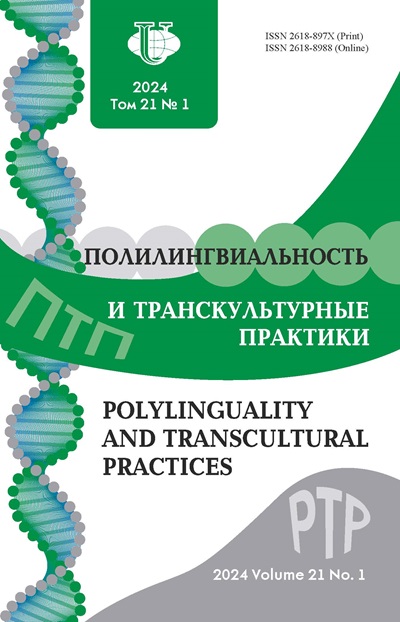Issue
Title
Authors
|
Rudenko-Morgun O.I., Arhangel’skaja A.L., Al’-Kaysi A.N. |
|
Akhnina K.V. |
|
Bragina M.A. |
|
Prokhorova I.O. |
|
Wenqian Zang -. |
|
Bulavina M.A. |
|
Balykhina T.M. |
|
Guirinskaya L.V. |
|
Namakshtanskaja I.E., Romanova E.V. |
|
Makhankova I.P., Novikova N.S., Serova L.K., Khvorikova E.G. |
|
Tsoupikova H.V. |
|
Romanova N.N., Amelina I.O. |
|
Stepanenko V.A., Nahabina M.M., Kurlova I.V. |
|
Ignatova I.B. |
|
Romero Intriago D.I. |
|
Wenqian Zang -. |
|
Kochai Mir Sahib Jan -. |
|
Archangelskaya A.L., Kameneva O.V. |
|
Vasil’eva A.A. |
|
Mamontov A.S., Tzedendorjiin E., Boguslavskaya V.V. |
|
Vladimirova T.E. |
|
Afanasieva N.D., Zakharchenko S.S., Mogileva I.B. |
|
Rostova E.G. |
|
Gadzhieva A.A. |
|
Gatinskaya N.V. |
|
Ovtcharenko A.Y. |
|
Pugachev I.A., Yarkina L.P. |
|
Voropaeva J.A. |
|
Avdeeva I.B. |
|
Li Chuan -. |
|
Iliyna V.A. |
|
Elagina R.I. |
|
Elnikova S.I. |
|
Lutin S.A. |
|
Alexeeva I.S. |
|
Mulahi S. |
|
Suprun V.I. |
|
Al-Kaisi A.N., Koutsoni O.M., Rudenko-Morgun O.I. |
|
Anikina M.N. |
|
Agmanova A.Y., Asmagambetova B.M. |
|
Lichačiova A.B. |
|
Mikheeva N.F., Dvoryadkina N.A. |
|
Ganelina Y.A. |
|
Maslova I.B., Gosteva Y.N. |
|
Kurilenko V.B., Titova L.A. |
|
Deikina A.D., Levushkina O.N. |
|
Sorokina E.V. |
|
Pugachev I.A. |
|
Zakoyan L.M. |
|
Balykhin M.G., Fedorenkov A.D. |
|
Bereznyatskaya M.A. |
|
Gartsov A.D. |
|
Bogdanova K.A. |
|
Kurilenko V.B., Makarova M.A. |
|
Milovanova I.S. |
|
Pavlyuk N.A. |
|
Qu Y. |
|
Vladimirova T.E. |
|
Baziyeva G.J., Uzdenova F.T. |
|
Chernishova E.B. |
|
Sinyachkin V.P., Dvoryashina V.S. |
|
Kulibina N.V. |
|
Turinova O.O. |
|
Sukhov N.V. |
|
Tsyrendorzhina A.B. |
|
Rumyantseva N.M., Yurova Y.V. |
|
Romanova N.N., Amelina I.O. |
|
Rosanova S.P. |
|
Morozova A.V., Cherkashina T.T. |
|
Alimova M.V. |
|
Shuang Xing Yuan -. |
|
Medvedev A.N., Tarasova D.A. |
|
Balykhina T.M., Netesina M.S. |
|
Naumenko Y.M. |
|
Abbasova A.A. |
|
Shoustikova T.V., Voronkova I.A., Shorkina E.N. |
|
Pomortseva N.V. |
|
Novikova N.S. |
|
Kulieva S.A. |
|
Seifert E.I. |
|
Debrenne M. |
|
Boasiako A.A. |
|
Anipkina L.N. |
|
Nikolaenko S.V. |
|
Letunovsky D.V. |
|
Bondareva O.V. |
|
Shatalova L.S., Shcherbakova O.M. |
|
Guirinskaya L.V. |
|
Tikhomirova E.E. |
|
Saricheva E.A., Yakushev V.V. |
|
Kiynova J.K. |
|
Ndiaye M. |
|
Bulkov A.A. |
|
Nazartseva E.A., Chauzova L.I. |
|
Malysheva N.A. |
|
Balykhin M.G. |
|
Khegay V.K. |
|
Afanasieva N.D., Zakharchenko S.S., Mogileva I.B. |
|
Lugovskaya E.G. |
|
Salimova D.A. |











